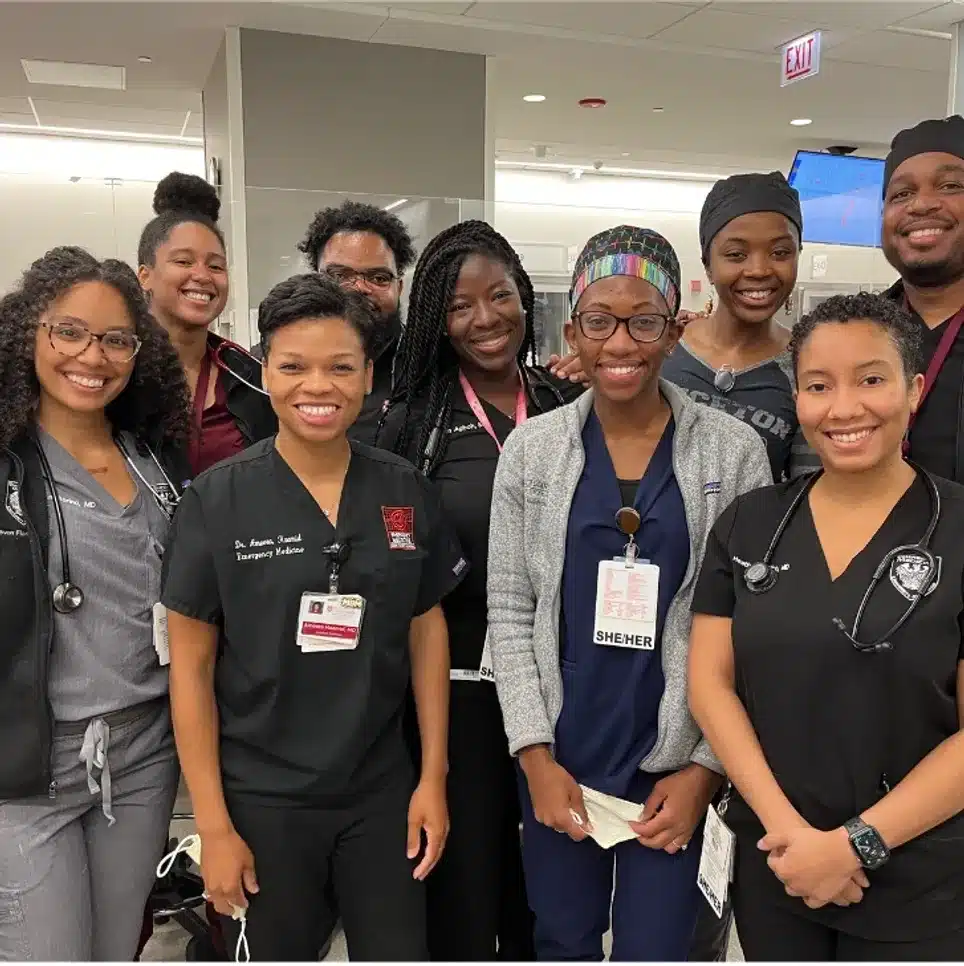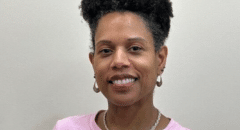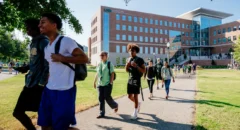
On the South Side of Chicago, where systemic barriers to quality health care persist and gun violence disproportionately impacts Black youth, one organization is working to break generational cycles by investing in education, mentorship, and trauma-informed care. The Medical Careers Exposure & Emergency Preparedness (MedCEEP) program is on a mission to transform underserved communities—not just by providing life-saving health skills, but by building a future pipeline of Black doctors and healthcare professionals.
Founded with a clear vision to increase representation in medicine and combat health disparities, MedCEEP is taking a holistic, community-centered approach that goes far beyond traditional health education. By empowering youth with emergency response skills and exposing them to the breadth of medical career possibilities, MedCEEP is helping young people see themselves in scrubs—and succeed.
Reimagining Representation in Medicine
While only 5% of U.S. doctors identify as Black—despite Black Americans making up about 14% of the population—MedCEEP is working to close this gap by targeting the problem early: in high school. Through immersive, hands-on learning, MedCEEP introduces students on Chicago’s South and West Sides to healthcare careers long before college applications are even on the table. The program gives students the tools to survive—and thrive—in environments where they are often underrepresented.
The Medical Careers Exposure Program, one of MedCEEP’s flagship initiatives, is a six-session curriculum that blends emergency preparedness training, mentorship, and exposure to healthcare professions in both classroom and real-world environments. From learning how to perform CPR and respond to gunshot wounds, to hearing directly from physicians and nurse practitioners who look like them, students gain both hard skills and the critical representation that can shift mindsets.
“TRAP”ping Violence with Education
In addition to building a future medical workforce, MedCEEP also understands that reducing community violence is essential to improving health outcomes. The organization’s TRAP (Trauma Response and Preparedness) Violence Workshop directly addresses structural causes of violence and helps students develop trauma coping skills. These workshops are designed to increase awareness of risk factors, teach conflict resolution, and equip youth with the ability to identify and respond to potentially violent encounters.
By acknowledging the lived realities of many young Chicagoans—including the mental and emotional toll of persistent community violence—MedCEEP makes space for healing and empowerment. This trauma-informed approach also reinforces the organization’s belief that wellness is not just physical, but also emotional, social, and structural.
Hands-On Learning That Saves Lives
At the core of MedCEEP’s work is its Emergency Response Workshop Program, which aims to equip as many South Side youth as possible with life-saving skills. Participants learn to identify the symptoms of life-threatening conditions like stroke and cardiac arrest, and receive certified training in CPR, defibrillator use, bleeding control, wound packing, and tourniquet application. These aren’t just abstract lessons—they’re practical tools for responding to emergencies in their communities and homes.
By 2025, MedCEEP has already trained more than 7,000 students and adults. Their reach extends beyond schools into churches, community fairs, and conferences. Each workshop is tailored to be age-appropriate, developmentally sound, and culturally relevant, reflecting MedCEEP’s commitment to meeting people where they are.
Bridging the Gap Between High School and Health Careers
For many Black and Brown students, the road to becoming a doctor can feel unreachable, especially without exposure to the healthcare field or knowledge of accessible career pathways. MedCEEP demystifies this process by introducing students to dual enrollment opportunities at institutions like Malcolm X College, where they can pursue training in nursing, EMT, and radiology tech programs while still in high school.
Additionally, field trips to the University of Chicago’s Simulation Center and the Museum of Science and Industry create immersive, engaging experiences where students can see science and medicine in action. These visits are not just educational—they are inspirational.
Each Medical Careers Exposure Program class includes a tailored curriculum for sophomores, juniors, and seniors. Lessons are interactive, incorporating icebreakers, hands-on activities, and longitudinal projects that reinforce both academic knowledge and personal accountability.
Partnering with Chicago’s Schools for Long-Term Impact
MedCEEP partners with both public and private schools across the city, including Julian High School, Englewood STEM, Kenwood Academy, and Crane Medical Prep. Some of these schools are part of Chicago’s Allied Health Career and Technical Education (CTE) program, allowing MedCEEP to integrate seamlessly into existing vocational tracks. Others are not formally affiliated, demonstrating the program’s flexibility and wide appeal.
Typically, the program is conducted with three different grade levels at each school, reaching 25 to 40 students per session. Faculty work closely with school administrators to ensure the programming is responsive to each school’s specific needs.
Rewriting the Future of Health Equity
While there are many conversations about the “pipeline problem” in medicine—the notion that there are simply too few Black students entering the field—MedCEEP’s model challenges this narrative. Instead of focusing solely on the end result, they’re addressing the root causes: lack of access, exposure, support, and early education. In doing so, they are redefining what it means to build a sustainable pipeline for future Black doctors and healthcare providers.
By equipping young people with medical skills, professional mentorship, and trauma resiliency tools, MedCEEP is shaping a generation that doesn’t just survive the system—they’re poised to change it from within.
A Call to Action
The work of MedCEEP is more than an educational initiative—it’s a movement rooted in community health, racial equity, and justice. As they continue to expand their programs and partnerships, they offer a powerful example of what’s possible when underserved youth are not just included in conversations about healthcare, but centered in the solutions.
If you’re a healthcare professional, educator, or community advocate, there are many ways to support MedCEEP’s mission. Whether through volunteering, mentorship, funding, or simply spreading the word, helping young people see themselves as future doctors is one of the most powerful tools we have to transform health outcomes in Black communities.









